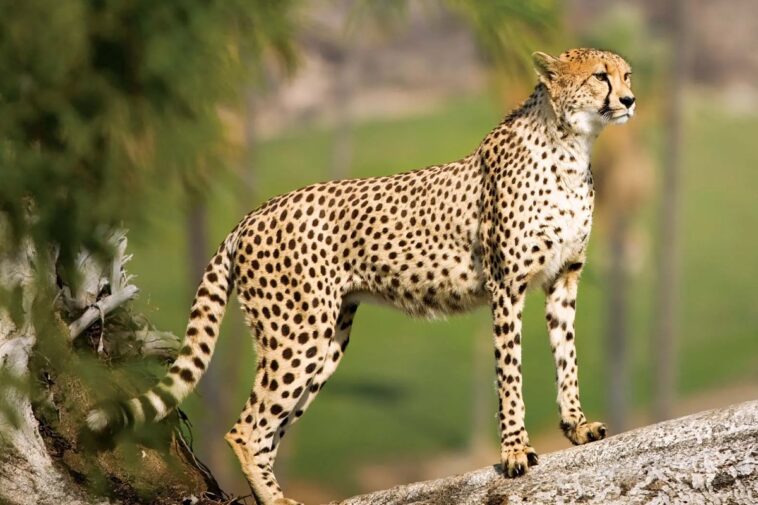Thursday, the Department of Forestry, Fisheries, and the Environment (DFFE) of South Africa stated that the fatalities of two cheetahs in the Kuno National Park of Madhya Pradesh are consistent with expected mortality rates for a project of this nature.
South Africa’s Department of Forestry, Fisheries, and the Environment (DFFE) issued the following statement: “The cheetah accompanied eight other mammals that were relocated from Namibia to India’s Kuno National Park in September 2022. The two cheetah fatalities observed to date (one in Namibia and one in South Africa) are consistent with mortality rates expected for a project of this nature.”
As part of an initiative to expand the cheetah metapopulation and reintroduce cheetahs to their former range state, the cheetahs were relocated to Kuno National Park in Madhya Pradesh.
“Large carnivore reintroductions are extremely complex and inherently risky operations,” the statement continued. This is a crucial phase of the experiment, as cheetahs are being released into environments where there is less and less control over their daily well-being.
According to the statement, injury and mortality risks will increase, and these risks are accounted for in the reintroduction plan.
“The Department of Forestry, Fisheries and the Environment (DFFE) awaits a diagnosis (an autopsy) for the cheetah’s death, but there is no indication that it was an infectious disease or that there is a similar threat to the other cheetahs,” the South African government said in a statement.
The statement continued, “All South African cheetahs are housed in larger enclosures and are monitored twice daily.” As they are wild cheetahs, their behavior, movements, and bodily condition must be evaluated from a distance, limiting the ability of on-the-ground teams to obtain precise information regarding their health status.”
In the next two months, the remaining eleven South African cheetahs will be released into the wild. Kuno is an unfenced protected area where leopards, wolves, sloth bears, and striped hyenas live in dense populations. As was observed with cheetah reintroductions in Africa, it is anticipated that a portion of the founding population will be lost within the first year after release”, the statement said.
“Many of the released cheetahs will escape the boundaries of Kuno National Park and may experience short-term stress during the recapture process,” the statement continued. Once the cheetahs establish their territories, the situation will stabilize.”
Uday, a six-year-old cheetah transported to India from South Africa, reportedly passed away on April 23.
Five-year-old Sasha, one of the eight Namibian cheetahs brought to India, died of renal failure on March 27 after being diagnosed with a kidney infection in January.
The governments of South Africa and India inked a Memorandum of Understanding (MoU) on Cooperation for the Reintroduction of Cheetahs to India earlier this year.
Also read this:Tiger seen at Kalesar National Park in Yamunanagar after 110 years.
The Memorandum of Understanding facilitates cooperation between the two countries to establish a viable and secure cheetah population in India; promotes conservation; and ensures that expertise is shared and exchanged, and capacity is developed, to promote cheetah conservation. This includes the resolution of conflicts between humans and wildlife, the capture and relocation of wildlife, and community participation in conservation efforts in the two countries.




